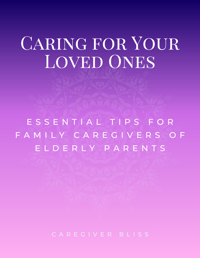As our loved ones age, it becomes increasingly important to be aware of potential health issues that may arise, and one such concern is Congestive Heart Failure (CHF). CHF is a condition that affects millions of elderly individuals worldwide, making it crucial for families to understand its causes, symptoms, and management strategies.
In this article, we will explore everything you need to know about CHF to better support your elderly parents.
Understanding Congestive Heart Failure
Congestive Heart Failure is a chronic condition where the heart is unable to pump blood effectively, leading to a backlog of fluid in the lungs and other parts of the body. Common causes include hypertension, coronary artery disease, and heart valve disorders. Recognizing the signs and symptoms early on is essential for timely intervention.
Symptoms of CHF
- Shortness of Breath: Elderly individuals with CHF often experience difficulty breathing, especially during physical activity or while lying down.
- Persistent Cough: A chronic cough, sometimes accompanied by frothy sputum, can be an indication of fluid buildup in the lungs.
- Fatigue: Unexplained fatigue and weakness, even after mild exertion, may signal a compromised heart function.
- Swelling: Edema, or swelling, in the legs, ankles, and abdomen is a common symptom of fluid retention.
- Rapid Weight Gain: Sudden weight gain may indicate fluid accumulation due to CHF.
Diagnosis and Treatment
If you suspect your elderly parent may have CHF, it is crucial to seek medical attention promptly. Diagnosis typically involves a thorough medical history, physical examination, and various tests such as echocardiograms and blood tests. Treatment options may include medications, lifestyle changes, and in severe cases, surgical interventions like heart valve repair or heart transplant.
Managing CHF in Elderly Parents
- Medication Adherence: Ensuring that your parent takes prescribed medications as directed is essential for managing CHF effectively. Medications may include diuretics, ACE inhibitors, beta-blockers, and more.
- Dietary Modifications: Adopting a heart-healthy diet low in sodium can help manage fluid retention. Encourage a balanced intake of fruits, vegetables, whole grains, and lean proteins.
- Regular Exercise: While tailored to the individual's capabilities, regular, moderate exercise can improve heart function and overall well-being.
- Monitoring Fluid Intake: Keeping track of daily fluid intake is crucial to prevent excessive fluid buildup. Restricting sodium intake is also beneficial.
- Regular Medical Check-Ups: Schedule regular follow-up appointments with healthcare professionals to monitor your parent's condition and adjust treatment plans as necessary.
Conclusion
Being informed about Congestive Heart Failure and its management is vital for supporting elderly parents. By recognizing symptoms, seeking timely medical attention, and implementing lifestyle changes, families can enhance the quality of life for their loved ones living with CHF. Empower yourself with the knowledge to provide the best care and support for your aging family members facing this challenging condition.
Share your experiences and insights in the comments section below. Whether you've faced similar challenges with elderly parents or have valuable tips for managing CHF, your input could make a meaningful difference for others navigating this complex journey.
Free Guide:
Caring For Your Loved Ones
 Attention family caregivers! Are you struggling to provide the best care for your aging parents? Don't worry, we've got you covered.
Attention family caregivers! Are you struggling to provide the best care for your aging parents? Don't worry, we've got you covered.
Download our free guide, Caring for Your Loved Ones: 10 Essential Tips for Family Caregivers of Elderly Parents, and unlock the secrets to becoming an exceptional caregiver.
From adapting the home environment to promoting independence, this invaluable resource will transform your caregiving experience into a more rewarding journey. Don't wait—give your loved ones the care they deserve, and download your free copy today!

